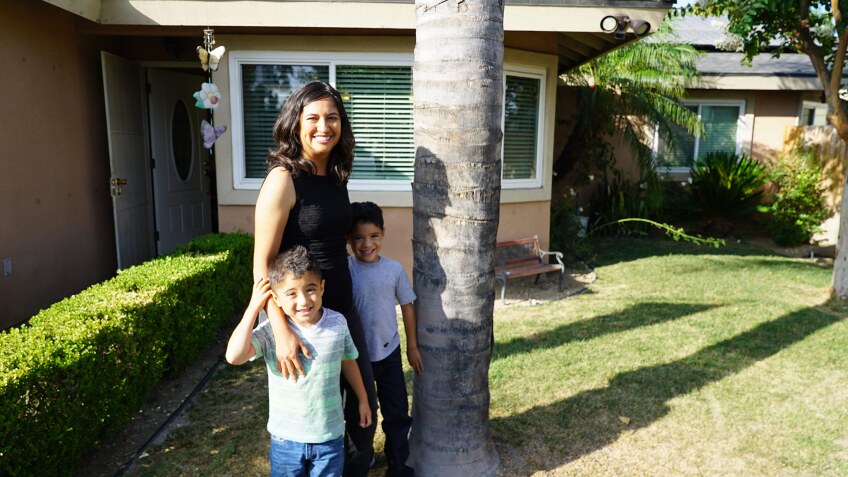Week 3: A Weekly Schedule for Joyful and Authentic Learning During School Closures
Thanks for tuning in to our third weekly schedule! We hope you and your families have been having just as much fun together as you are learning together. The education team at PBS SoCal and KCET has cooked up a new batch of ideas and resources to help you create authentic and joyful learning experiences at home. Every week, we will provide you with a weekly schedule that can help you add structure to your children’s learning routine.

Here’s this week’s schedule:
This week’s theme is Making Memories! With schools closed and all families being asked to stay at home, it’s a bit mind-boggling to think that we are actually living in a moment of unprecedented world history. Here are a few ideas that will help you and your family reflect on important events, meaningful people and special moments you have shared together in the past and present.
Ideas for Early Learners (Pre-K-3rd grade)
Take a walk down memory lane. Many children may miss their extended family members during this time of social distancing. Spend some time looking at family photos and take the opportunity to relive special moments like birthdays or family vacations. Ask your child to name everyone in the photos and think back to their favorite memory of that day, asking questions such as, “Do you remember what we did with Grandma the last time we went to her house? What did she cook for us? What game did we play?” The next time you talk to Grandma on the phone, your child can reminisce about the fun day they had together. Research shows that having young children relive and retell special memories improves their memory and ability to tell a story.
- Tip: Using crayons, markers and paper build a collection of memories into a memory book. Document important events that happened to your family by adding short descriptions of who was there and include photos.
Every child’s learning style is different, and as you find your new “normal” at home, you may see that structured schedules are not for everyone. Instead, try making a calendar with at least one new event listed on each day. Calendars teach important math skills like measuring time in different units such as days, weeks and months. Seeing what is coming up in the week may help restless kids have something to look forward to. Or use a space in the calendar to document one special moment your child would like to remember about that day. At the end of the week, go back through each day of the week and talk about what happened.
- Learn about calendars with Peg + Cat:Peg and Cat miss their friend Pig when he leaves to join the opera so they make a calendar to record how long he has been gone and celebrate when he returns. After the episode, talk about how a calendar was useful for Peg + Cat.
- Mark upcoming family movie nights, birthdays, or holidays on the calendar and count how many days or weeks until the special day arrives. Create a calendar to hang on the fridge or on the wall.
Ideas for Older Children (4th Grade-12th Grade)
- Get Nostalgic. With so much time inside, we are all binging our favorite shows and movies. But, this time can also be a great opportunity to share and connect with your children. Plan a family movie night and show your kids some of your favorite pop culture films from your own childhood. Need ideas? Here a curated list of family-friendly movie night classics. A retro movie night is a great opportunity to relax with your kids, share memories and all laugh at how THAT outfit could have ever been considered cool.
- This week’s PBS Digital Series spotlight is Braincraft, a show that talks about psychology, neuroscience and why we act the way we do. Check out this episode on Memory.
- There’s no denying that we are living through a significant moment in history. Set aside time for your kids to write down their experiences. Explain that personal journals are often used by historians to make sense of what happened in the past, and they can help future historians understand the pandemic. What is their day-to-day life like? How do they feel? This activity not only creates an interesting account for your kids to look back on when they grow up, but journaling is a screen-free activity that helps your children reflect on what’s going on in the world and has been shown to bebeneficial to our mental health.
More Resources
- Do your older kids have questions about Social Distancing? Our friends at KQED’s "Above the Noise" tackled the topic in this video Why Social Distancing Saves Lives.
- Tune in to PBS KIDS programming on your local PBS SoCal channel for curated educational content for children in Pre-K through 3rd grade. Tune in to KLCS for content targeted toward 3rd-8th graders and KCET for content geared for 9th-12th graders.
- Visit PBS LearningMedia for free PBS KIDS standards-aligned videos, lesson plans, and other resources about Math, English Language Arts, Social Studies, Science, and Social-Emotional learning.